Kyi Thar
Attention on Personalized Clinical Decision Support System: Federated Learning Approach
Jan 22, 2024Abstract:Health management has become a primary problem as new kinds of diseases and complex symptoms are introduced to a rapidly growing modern society. Building a better and smarter healthcare infrastructure is one of the ultimate goals of a smart city. To the best of our knowledge, neural network models are already employed to assist healthcare professionals in achieving this goal. Typically, training a neural network requires a rich amount of data but heterogeneous and vulnerable properties of clinical data introduce a challenge for the traditional centralized network. Moreover, adding new inputs to a medical database requires re-training an existing model from scratch. To tackle these challenges, we proposed a deep learning-based clinical decision support system trained and managed under a federated learning paradigm. We focused on a novel strategy to guarantee the safety of patient privacy and overcome the risk of cyberattacks while enabling large-scale clinical data mining. As a result, we can leverage rich clinical data for training each local neural network without the need for exchanging the confidential data of patients. Moreover, we implemented the proposed scheme as a sequence-to-sequence model architecture integrating the attention mechanism. Thus, our objective is to provide a personalized clinical decision support system with evolvable characteristics that can deliver accurate solutions and assist healthcare professionals in medical diagnosing.
Federated Learning based Energy Demand Prediction with Clustered Aggregation
Oct 28, 2022Abstract:To reduce negative environmental impacts, power stations and energy grids need to optimize the resources required for power production. Thus, predicting the energy consumption of clients is becoming an important part of every energy management system. Energy usage information collected by the clients' smart homes can be used to train a deep neural network to predict the future energy demand. Collecting data from a large number of distributed clients for centralized model training is expensive in terms of communication resources. To take advantage of distributed data in edge systems, centralized training can be replaced by federated learning where each client only needs to upload model updates produced by training on its local data. These model updates are aggregated into a single global model by the server. But since different clients can have different attributes, model updates can have diverse weights and as a result, it can take a long time for the aggregated global model to converge. To speed up the convergence process, we can apply clustering to group clients based on their properties and aggregate model updates from the same cluster together to produce a cluster specific global model. In this paper, we propose a recurrent neural network based energy demand predictor, trained with federated learning on clustered clients to take advantage of distributed data and speed up the convergence process.
Risk Adversarial Learning System for Connected and Autonomous Vehicle Charging
Aug 02, 2021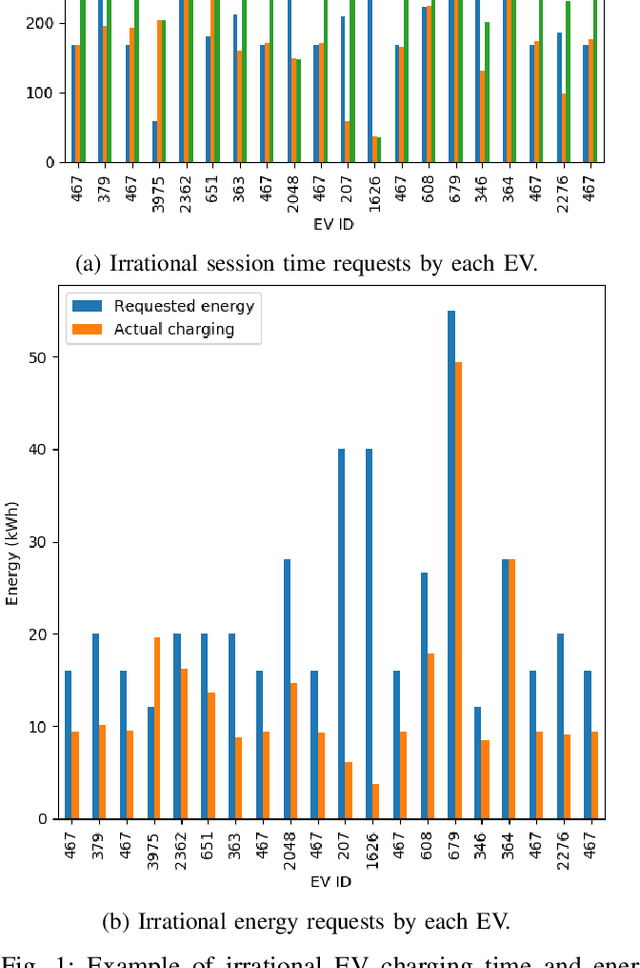
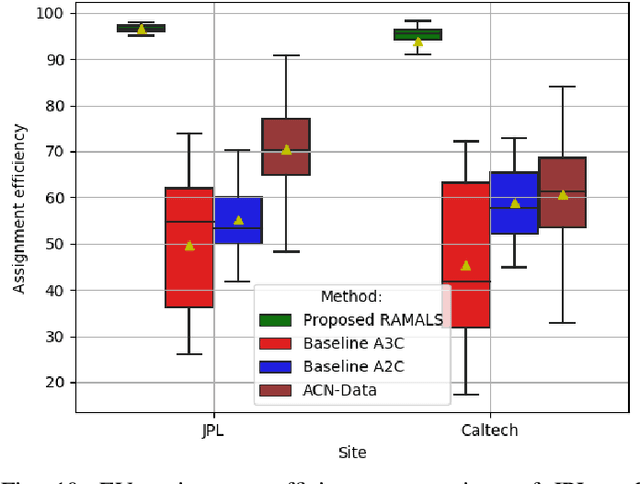
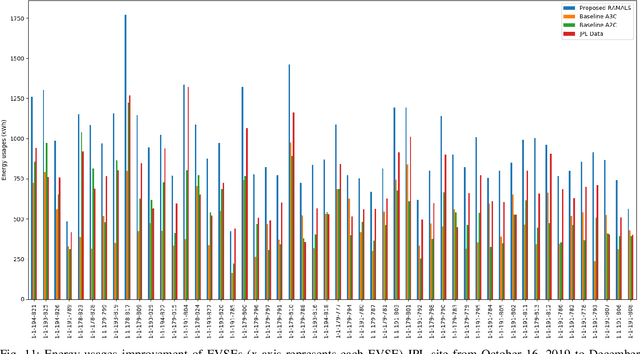
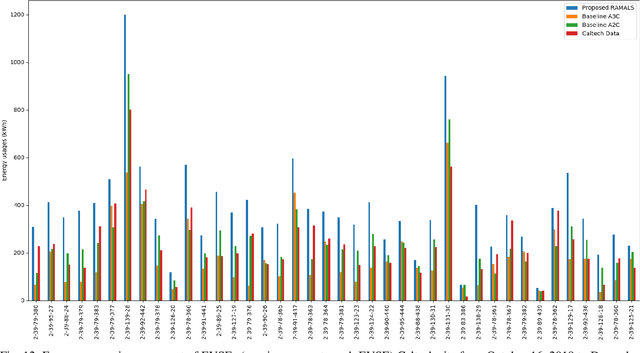
Abstract:In this paper, the design of a rational decision support system (RDSS) for a connected and autonomous vehicle charging infrastructure (CAV-CI) is studied. In the considered CAV-CI, the distribution system operator (DSO) deploys electric vehicle supply equipment (EVSE) to provide an EV charging facility for human-driven connected vehicles (CVs) and autonomous vehicles (AVs). The charging request by the human-driven EV becomes irrational when it demands more energy and charging period than its actual need. Therefore, the scheduling policy of each EVSE must be adaptively accumulated the irrational charging request to satisfy the charging demand of both CVs and AVs. To tackle this, we formulate an RDSS problem for the DSO, where the objective is to maximize the charging capacity utilization by satisfying the laxity risk of the DSO. Thus, we devise a rational reward maximization problem to adapt the irrational behavior by CVs in a data-informed manner. We propose a novel risk adversarial multi-agent learning system (RAMALS) for CAV-CI to solve the formulated RDSS problem. In RAMALS, the DSO acts as a centralized risk adversarial agent (RAA) for informing the laxity risk to each EVSE. Subsequently, each EVSE plays the role of a self-learner agent to adaptively schedule its own EV sessions by coping advice from RAA. Experiment results show that the proposed RAMALS affords around 46.6% improvement in charging rate, about 28.6% improvement in the EVSE's active charging time and at least 33.3% more energy utilization, as compared to a currently deployed ACN EVSE system, and other baselines.
Edge-assisted Democratized Learning Towards Federated Analytics
Dec 01, 2020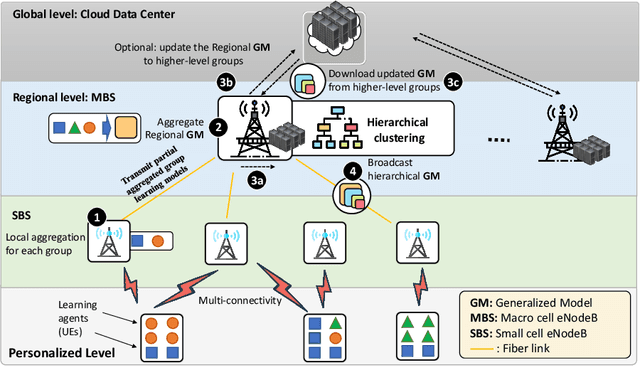
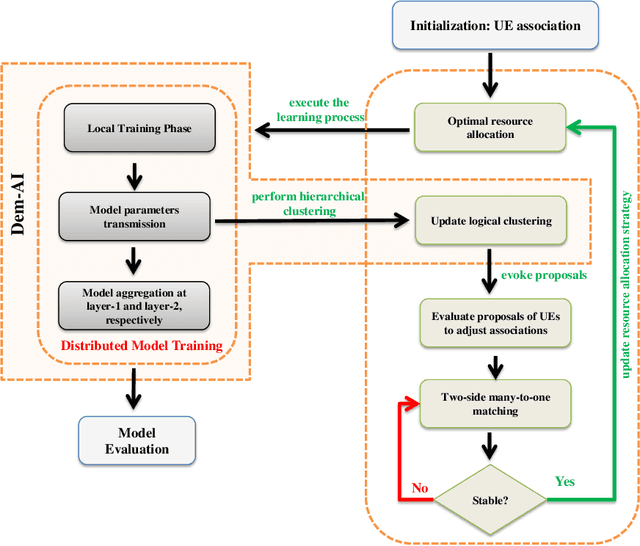
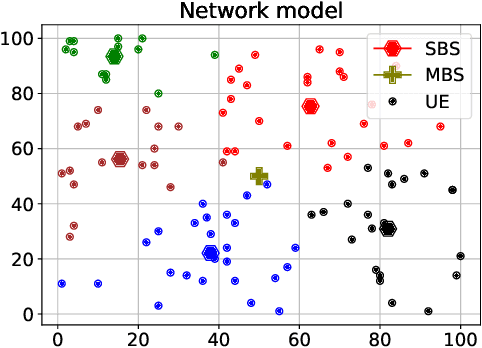
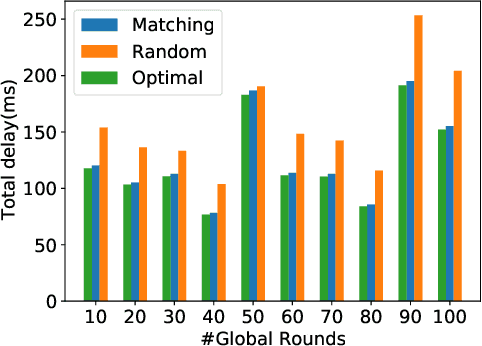
Abstract:A recent take towards Federated Analytics (FA), which allows analytical insights of distributed datasets, reuses the Federated Learning (FL) infrastructure to evaluate the population-level summary of model performances. However, the current realization of FL adopts single server-multiple client architecture with limited scope for FA, which often results in learning models with poor generalization, i.e., an ability to handle new/unseen data, for real-world applications. Moreover, a hierarchical FL structure with distributed computing platforms demonstrates incoherent model performances at different aggregation levels. Therefore, we need to design a robust learning mechanism than the FL that (i) unleashes a viable infrastructure for FA and (ii) trains learning models with better generalization capability. In this work, we adopt the novel democratized learning (Dem-AI) principles and designs to meet these objectives. Firstly, we show the hierarchical learning structure of the proposed edge-assisted democratized learning mechanism, namely Edge-DemLearn, as a practical framework to empower generalization capability in support of FA. Secondly, we validate Edge-DemLearn as a flexible model training mechanism to build a distributed control and aggregation methodology in regions by leveraging the distributed computing infrastructure. The distributed edge computing servers construct regional models, minimize the communication loads, and ensure distributed data analytic application's scalability. To that end, we adhere to a near-optimal two-sided many-to-one matching approach to handle the combinatorial constraints in Edge-DemLearn and solve it for fast knowledge acquisition with optimization of resource allocation and associations between multiple servers and devices. Extensive simulation results on real datasets demonstrate the effectiveness of the proposed methods.
Distributed and Democratized Learning: Philosophy and Research Challenges
Mar 18, 2020
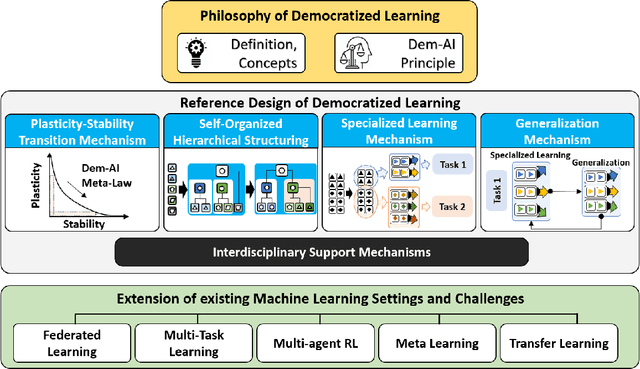
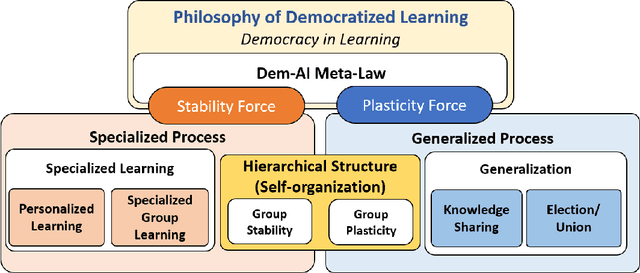
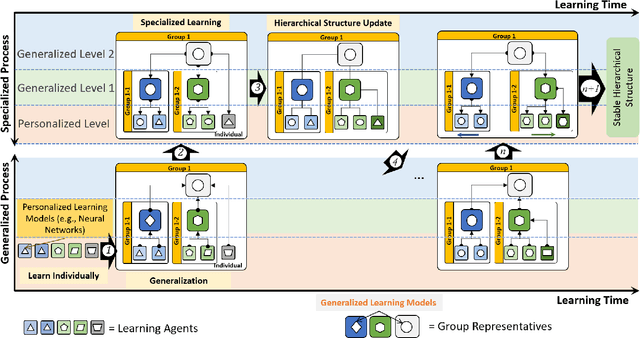
Abstract:Due to the availability of huge amounts of data and processing abilities, current artificial intelligence (AI) systems are effective at solving complex tasks. However, despite the success of AI in different areas, the problem of designing AI systems that can truly mimic human cognitive capabilities such as artificial general intelligence, remains largely open. Consequently, many emerging cross-device AI applications will require a transition from traditional centralized learning systems towards large-scale distributed AI systems that can collaboratively perform multiple complex learning tasks. In this paper, we propose a novel design philosophy called democratized learning (Dem-AI) whose goal is to build large-scale distributed learning systems that rely on the self-organization of distributed learning agents that are well-connected, but limited in learning capabilities. Correspondingly, inspired from the societal groups of humans, the specialized groups of learning agents in the proposed Dem-AI system are selforganized in a hierarchical structure to collectively perform learning tasks more efficiently. As such, the Dem-AI learning system can evolve and regulate itself based on the underlying duality of two processes that we call specialized and generalized processes. In this regard, we present a reference design as a guideline to realize future Dem-AI systems, inspired by various interdisciplinary fields. Accordingly, we introduce four underlying mechanisms in the design such as plasticity-stability transition mechanism, self-organizing hierarchical structuring, specialized learning, and generalization. Finally, we establish possible extensions and new challenges for the existing learning approaches to provide better scalable, flexible, and more powerful learning systems with the new setting of Dem-AI.
 Add to Chrome
Add to Chrome Add to Firefox
Add to Firefox Add to Edge
Add to Edge